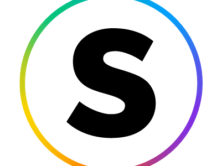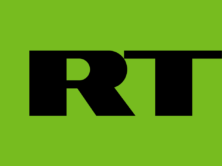(Credit: South African Press Council)
South Africa’s press council has updated its press code to prohibit plagiarism, checkbook journalism, and discrimination, effective Oct. 15.
Also, the code tells journalists not to report “the HIV/AIDS status” of individuals “without their consent.”
South Africa’s deputy ombudsman, Johan Retief, explained to iMediaEthics that the updated code is in response to the African National Congress’s calls for a new way of regulating the press — a media appeals tribunal, which could effectively replace the ombudsman and press council’s office. (See our stories on that issue here and here).
According to Retief, the press council typically “reviews its system every 5 years,” but this update to the code was reacting to the “threat of a statutory Media Appeals Tribunal.” Retief wrote to StinkyJournalism that the council met with the public, reviewed 100 other codes, and looked at what specifically South African journalists encounter. The press council started looking into the revisions in August 2010, according to Retief.
“We feel that, with the new Code, we have raised the ethical horizon and believe that it will or should contribute to greater accountability,” Retief told StinkyJournalism.
Retief also provided iMediaethics with a PowerPoint presentation on the new code and the code itself.
The PowerPoint presentation Retief provided noted that the “council’s work [is] determined by public interest” and that the “press [is] essential to democracy.” The presentation reminds that the code calls for journalists to “commit to [the] highest standards of excellence,” with tenets mirroring those of the U.S. Society of Professional Journalists, such as seeking the truth, minimizing harm and having independence.
New to the press code include sections calling for editorial independence, warning against conflicts of interest and advising “exceptional care, consideration” for dignity and reputation. For example, the code tells journalists to differentiate between news and advertising, turn down any “bribes/gifts/benefits if they may influence coverage,” and note any outside influence on stories.
The press code also features expanded sections concerning newsgathering, privacy and reporting on children.
The newsgathering section became more proactive — instead of just prohibiting “dishonest, unfair means of newsgathering,” the code calls for journalists to act “legally, honestly, [and] fairly,” according to the press council’s power point presentation. Also, journalists are reminded they must “identify” themselves when working as a journalist, therefore barring undercover reporting.
Regarding privacy and children, the code now expands its call for rape victims’ identities to be “protected” by including the protection of children and a person’s HIV/AIDS status. The new code bars the identification of “children who are victims of abuse, exploitation, or who are criminals” and reminds journalists to take “exceptional care [and] consideration” when reporting on children.
The revised code also takes its previous guideline to “protect” anonymous sources a step further by calling for journalists to “avoid, unless necessary.”
Also of interest is the code’s comments concerning advocacy journalism. Journalists are instructed again “distorting the facts” and misrepresentation.
South Africa’s press ombudsman, Joe Thloloe, explained the new code will hopefully “help improve journalism” in South Africa, the Mail & Guardian reported. The code also now includes guidance on “dignity and reputation.”
Thloloe noted that his office has received more complaints this year (“expected 300”) than last year’s 213 complaints over the media, the Mail & Guardian reported. Thloloe also criticized the inappropriate use of anonymous sources.
South Africa’s Business Day added that Paddi Clay, who is “the head of the Avusa journalism training programme,” expressed concerns that the code could lead journalists to “self-censor.” Avusa is a major media company that owns newspapers including the Times of South Africa, the Sowetan, Sunday World, the Herald of South Africa and others.
Clay also called for transparency from “public officials.”
Earlier this month, we wrote when South African newspaper the Financial Mail apologized after it was revealed one of the newspaper’s articles plagiarized from Bloomberg Businessweek.






